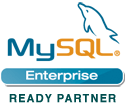Automatically back up MySQL database, ability to select any items of MySQL and automatically back up the newly-created MySQL databases, ability to make full/incremental/differential backup on schedule.
How to back up MySQL database automatically?
Are you looking for a software which can back up MySQL database automatically? The software Automatic Backup Scheduler for MySQL can help you automatically back up MySQL database to the SQL files, the other MySQL server or database on schedule. In this tutorial, we will focus on back up MySQL databases to the other server.
Automatic Backup Scheduler for MySQL is an easy-to-use and professional automated MySQL backup and recovery software. The software ability to select any items of MySQL database and automatically back up the newly-created MySQL databases. It can make full/incremental/differential backup on schedule. When an error occurs the software will send you an email with the error report.
Please follow the steps to automatically back up MySQL databases to the other server:
- Runs under Windows 8/7/2008 Server/Vista/2003 Server/XP/2000 (32 bit and 64 bit).
- Supports MySQL from 4.0 to the latest version (MySQL 4.0, 4.1, 5.0, 5.1, 5.5, 5.6, 6.0, etc.).
- Supports MySQL servers run on all Operating Systems (Linux, UNIX, Windows, Ubuntu, etc.).
- Launch the software Automatic Backup Scheduler for MySQL.
- Create a task to Back up MySQL databases to the other server.
- Enter the name of the task and click Next.

- Host Name or IP Address: The host name ( e.g. www.databasethink.com ) or IP address ( e.g. 127.0.0.1 ) of the remote MySQL server.
- MySQL Port : The port of the remote MySQL server, the default port is 3306.
- Username: The name of the user on the remote MySQL server.
- Password: The user's password on the remote MySQL server. Leave it blank if the user has no password.

If you check the option Always back up all of updates of the current database, the software will automatically add the newly created items and remove the dropped items from the source database list of the task for copying, you don't need to edit the task manually.
If you check the option Table Structure, the software will copy the structure of the selected tables, those are the CREATE table statements.
If you check the option Table Records, the software will copy the records of the selected tables, those are the INSERT statements.
There are three backup types for the backup tasks: MySQL Full Backup, Incremental Backup and Differential Backup. Differential Backup is not available in the Back up MySQL databases to the other server task. Please click Settings... to set up the Incremental/Differential Backup Options if you choose it.

You can click Advanced Settings... (flush, lock, using hexadecimal notation, Innodb, Master and Slave, etc.) to optimize the backup.
Please click Backup Tablespaces... to choose if back up the tablespaces or not. You can back up all of Tablespaces or back up Tablespaces for the selected databases and tables, or don't back up any Tablespaces.
- Enter the information of the destination MySQL server on Step 4 of the Task Wizard.
- Enter the SQL Script for running on Step 5 of the Task Wizard.
- Choose the Task Scheduler for running the task on Step 6 of the Task Wizard.
- Click Finish on Step 7 of Task Wizard to finish the task creation.
That's all. The software will automatically back up the MySQL database to the other remote or local MySQL server.
- Runs under Windows 8/7/2008 Server/Vista/2003 Server/XP/2000 (32 bit and 64 bit).
- Supports MySQL from 4.0 to the latest version (MySQL 4.0, 4.1, 5.0, 5.1, 5.5, 5.6, 6.0, etc.).
- Supports MySQL servers run on all Operating Systems (Linux, UNIX, Windows, Ubuntu, etc.).












